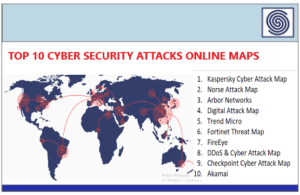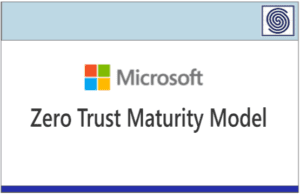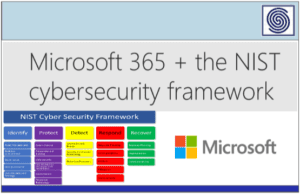Source: levelblue.com – Author: hello@alienvault.com.
Implementing cloud security policies and technologies has seen sustained growth in recent years. However, despite the widespread adoption of cloud-based solutions, many companies have yet to fully recognize the critical importance of cloud security or still find themselves wondering: what is cloud security and why should it matter to their business?
Migrating to the cloud provides organizations with the agility to move faster and more efficiently. It has revolutionized how we work, communicate, and collaborate on a global scale. In today’s digital environment, integrating cloud computing security is no longer optional, it has become essential for maintaining a competitive edge.
As companies embrace digital transformation and move toward greater optimization, new challenges arise. One of the biggest concerns is how to balance productivity with security. While advanced technologies enable organizations to expand their capabilities, the shift to cloud-based environments can expose them to new vulnerabilities if not managed properly.
Finding the right balance requires a deep understanding of how interconnected cloud technologies can support business growth, while also ensuring proper implementation of cloud security best practices to minimize risks.
What Is Cloud Security?

Cloud security refers to a combination of policies, controls, technologies, and procedures that work together to protect cloud-based systems, data, and infrastructure. It is designed to safeguard digital assets from data breaches, loss, unauthorized access, and a wide range of cyber threats.
As the volume of data being created and shared continues to grow exponentially, and users increasingly expect seamless access to digital services, traditional on-premises systems have become insufficient. For many businesses, operating solely with internal computing infrastructure is no longer viable, especially when agility and scalability are crucial for survival.
Cloud web security allows companies to access and manage digital resources and applications from virtually anywhere, as long as there’s an internet connection. Most cloud services are managed by third-party providers, who are responsible for maintaining infrastructure and providing continuous updates. This setup benefits organizations by granting them access to cutting-edge tools without costly infrastructure investments or constant in-house IT management.
Key Benefits of Cloud Data Protection
As more applications and data move beyond traditional data centers and away from conventional security controls, organizations face increased exposure to cyber risks. However, adopting strong cloud security practices offers a wide array of benefits, including:
1. Automated Backups and Disaster Recovery
Leading cloud providers offer built-in backup and disaster recovery capabilities. In case of a hardware failure, ransomware attack, or accidental deletion, companies can quickly restore operations. Cloud-based recovery systems reduce downtime and data loss, helping businesses maintain continuity and resilience.
2. Adoption of Zero Trust Architecture
Zero Trust Architecture has become a standard in cloud security. This approach involves continuously verifying the identity of users and devices, eliminating implicit trust within the network. Implementing this model helps minimize attack surfaces and prevent lateral threat movements within the infrastructure.
3. Focus on Supply Chain Security
Supply chain security has become a top priority with the increase in third-party integrations in cloud ecosystems. In fact, 94% of cyber-resilient organizations from the 2025 LevelBlue Futures Report: Cyber Resilience and Business Impact said they are investing in software supply chain security, compared with 62% of businesses overall. Companies are implementing rigorous assessments and robust security measures to protect against vulnerabilities introduced by external providers.
4. Automation of Regulatory Compliance
Cloud security solutions now include tools that automate regulatory monitoring and compliance, reducing manual workload and ensuring that companies stay updated with ever-evolving regulations.
5. Integration of Artificial Intelligence
Artificial Intelligence (AI) and Machine Learning (ML) are becoming important tools to defend against emerging cyber threats. These technologies can analyze large volumes of data to identify patterns and anomalies, enabling proactive responses to potential security incidents. According to the 2025 LevelBlue Futures Report: Cyber Resilience and Business Impact, 67% of organizations surveyed said they are investing in Machine Learning for pattern matching.
Challenges of Enterprise Cloud Security

At LevelBlue, we specialize in guiding our clients through cybersecurity complexities, offering expert advice to ensure your cloud security solution aligns with your goals and compliance requirements.
1. Multi-Tenant Cloud Environments
In public cloud settings, multiple clients may share the same physical servers. This shared environment raises concerns that one tenant’s data could be exposed due to vulnerabilities or attacks targeting another tenant. Strong isolation mechanisms and segmentation are essential to reduce this risk.
2. Lack of Unified Visibility
Organizations that rely on multiple cloud providers may struggle with fragmented visibility. This decentralized model can create blind spots, such as unmonitored endpoints, traffic, or workloads, that increase the risk of breaches. Consolidated monitoring tools can help restore control and clarity.
3. Shadow IT Risks
With the growth of remote and hybrid work, employees often use unauthorized cloud applications or devices to perform tasks. This practice, known as shadow IT, can bypass official security protocols, creating hidden vulnerabilities. Educating staff and implementing access controls is vital to mitigate this risk.
4. Dynamic and Complex Workloads
Modern cloud environments host diverse workloads, including virtual machines, microservices, containers, and databases. Ensuring that each component is properly secured is a complex process that requires automation, orchestration, and continuous monitoring.
5. Compliance and Data Sovereignty
Regulatory frameworks such as HIPAA, GDPR, and PCI DSS impose strict requirements for data storage, usage, and protection. Ensuring compliance in cloud environments, especially when data crosses borders, can be challenging. Working with providers that offer region-specific services and clear compliance documentation is crucial.
Securing the Future of Your Business
In today’s digital-first world, prioritizing cloud security is no longer a luxury, it’s a necessity. Organizations must adopt rigorous cloud security measures and follow proven best practices to ensure a safe and smooth migration to the cloud.
Navigating the cloud security landscape can feel overwhelming, but with the right support, tools, and guidance, it becomes manageable. That’s where LevelBlue excels, as your trusted partner for secure cloud adoption. We help your teams move forward with confidence, allowing them to focus on what matters most while we take care of protecting your digital environment.
The content provided herein is for general informational purposes only and should not be construed as legal, regulatory, compliance, or cybersecurity advice. Organizations should consult their own legal, compliance, or cybersecurity professionals regarding specific obligations and risk management strategies. While LevelBlue’s Managed Threat Detection and Response solutions are designed to support threat detection and response at the endpoint level, they are not a substitute for comprehensive network monitoring, vulnerability management, or a full cybersecurity program.
Original Post url: https://levelblue.com/blogs/security-essentials/what-is-cloud-security-and-how-can-it-benefit-your-business
Category & Tags: –
Views: 1




















































